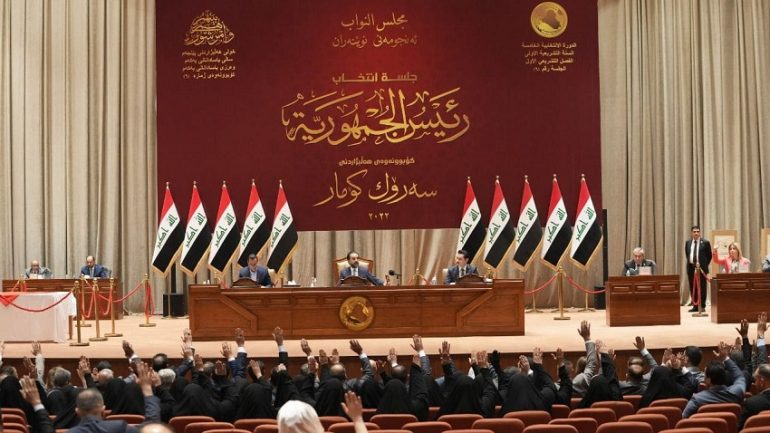Deputy premier voices discontent over current political climate in Kurdistan
KDP politburo member Nawzad Hadi has voiced discontent over the amendments made to the KRG share in the Iraqi budget.
Iranian Kurdish leader Mohtadi says Tehran's pressure is a distraction from protests
Political infighting hampering Sinjar reconstruction – Human Rights Watch
Human Rights Watch (HRW) has today unveiled a report asserting that ongoing political discord is impeding the reconstruction of Sinjar district in northern Iraq. The district sustained significant damage during the conflict against ISIS and, despite the reported allocation of funds for reconstruction, remains largely in disarray.
Sarah Sanbar, Iraq researcher at HRW, pointed out, "Political infighting is preventing the utilization of available funds while the people of Sinjar remain in a state of uncertainty." The standstill has resulted in delayed critical infrastructure repair and provision of essential services to the inhabitants of the region.
According to the International Organization for Migration (IOM), the battle with ISIS between 2014 and 2017 led to the destruction of roughly 80 percent of public infrastructure and 70 percent of homes in Sinjar Town, the district's largest city. This has left the residents grappling with inconsistent access to electricity and water, with numerous health and education facilities still severely damaged or entirely destroyed.
The report shines a light on the political and infrastructural challenges facing Sinjar, a district disputed between the KRG and the federal government of Iraq. The administrative ambiguity has led to a situation where the mayor of Sinuni, in northern Sinjar, is currently serving as the acting mayor of Sinjar from Dohuk. This forces Sinjaris to travel to access administrative and civil documentation services.
The HRW report accentuates the pressing need for political collaboration and concrete action to ameliorate the situation in Sinjar. It serves as an urgent call to all stakeholders to prioritize the welfare of the people of Sinjar above political disputes.
Member of Iraqi parliament finance committee voices uncertainty over budget bill amendments
Friction between KDP and PUK escalates amid budget amendments and court rulings
Oil export suspension impacts workers, causes spending cutbacks in Kurdistan Region
Hawkar Jaff's brother asserts fair trial, openness to international court intervention

Leadership of NATO's Iraq mission transfers from Italy to Spain
NATO recently announced a change in command of its Iraq mission, with Italy handing over the reins to Spain on May 24 in Baghdad. Lieutenant General José Antonio Agüero Martínez of Spain has assumed the responsibility of leading NATO Mission Iraq.
In its statement, NATO proclaimed: "Tangible results have been achieved to create the conditions for lasting security in Iraq and stability across the region."
Back in April, forces from the anti-ISIS coalition indicated a drop in militant activities in Iraq and Syria this year. Major-General Matthew McFarlane, Commander of the Combined Joint Task Force-Operation Inherent Resolve, shared: "Since the beginning of this year in Iraq – that’s from January 1st through the first week of April – we've recorded a 68 percent reduction in attacks compared to the same period last year."
Iraqi parliament gears up to vote on controversial budget bill
Morning briefing
- Following extended negotiations among the Finance Committee and various political factions, the Iraqi Parliament is set to hold a session on Thursday to vote on the national budget. While there's been reported progress concerning the budget share and articles 13 and 14 tied to the Kurdistan Regional Government (KRG), it's still unclear whether the issues between the KRG and the Finance Committee have been fully resolved.
- The political cold war between the Patriotic Union of Kurdistan (PUK) and the Kurdistan Democratic Party (KDP) persists, with new developments in Hawkar Jaff's case. This week, a court in Erbil issued a death sentence in absentia for the Head of the PUK's Counter Terrorism Group (CTG) and several of its commanders. The PUK has denounced the court ruling, dismissing it as a political move. It seems that the PUK and KDP are entering yet another challenging period in their relationship, a situation not only due to Jaff's case but also disputes over the KRG's portion of the Iraq budget and the provinces' direct relationship with the Iraqi Federal Government.











